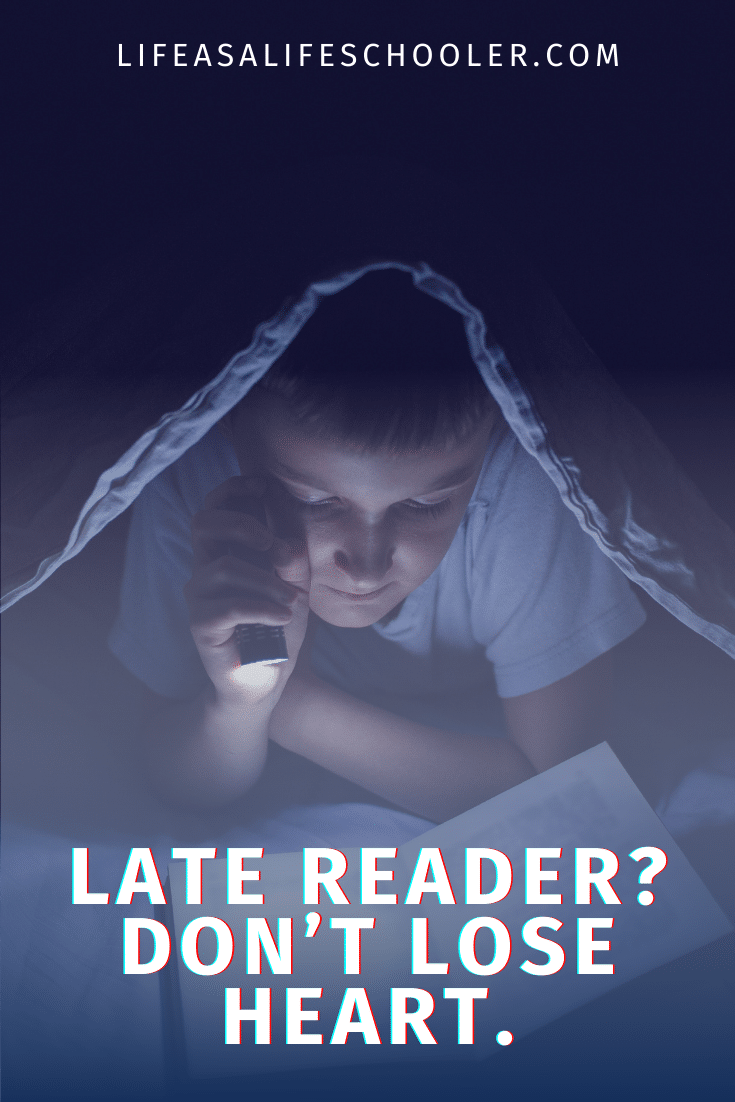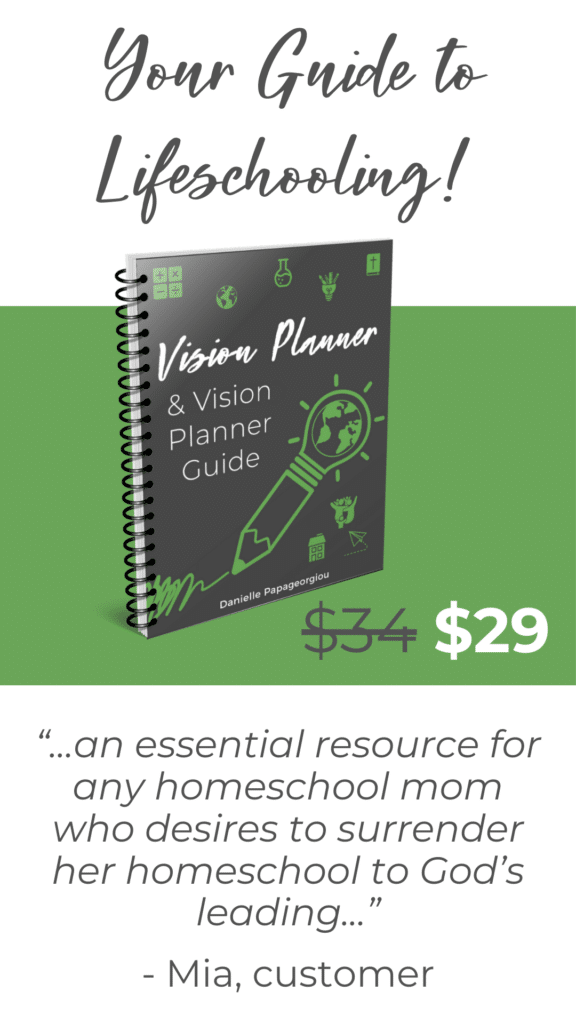My oldest son didn’t read fluently until he hit middle school, obviously a late reader. As you might imagine, I worried. A lot. And, I tried everything to get him reading. I’m pretty sure I bought at least five different reading programs that promised results. I kept thinking, “this one will be the one that works.” Little did I know that it only takes 30 hours to teach a child to read when they are ready to learn. He obviously wasn’t.
But, he would seem to make progress as he squirmed and struggled, and then, he’d regress. It was two steps forward, one step back. Year after year from about age six until age ten, I excitedly opened that shiny new reading program. He would sigh and reluctantly agree to try it. We’d muddle through for about three months and then set it aside. He’d had enough. And, I’d had enough, too. Obviously, my efforts weren’t working and instead of instilling a love of reading, my fears drove him far, far away from that goal. Instead, I was teaching him to hate reading.
So, how did my son learn to read, then?
It’s complicated. But, he started reading fluently on his own after I stopped teaching him.
Have a late reader? Don’t lose heart.
Nothing is wasted.
Even though the reading lessons were three months on, six months off, he didn’t forget what he’d learned. His brain just took a lot longer to process it. I saw this in action when he did start reading. He used the phonics he’d learned when he sounded out unfamiliar words. I heard him reciting the little stories we used when remembering sight words. So, while I might be tempted to think that all those lessons were wasted because my late reader took so long to actually read, they weren’t. God incubated them until I was ready to surrender my son to His teaching.
God redeems everything. But, in his timing.
Overcoming Reading Challenges
On the other hand, those short stints were still enough to stir up negative feelings whenever he picked up a book or magazine. It took a looong time for him to overcome those associations. It also took some special consideration when it came to high school reading material. Through careful selection of audiobooks and allowing my son to read graphic novels, he slowly overcame the negative affiliations. But, reading remains a task that requires a great deal of energy and focus for him. Even so, he successfully reads adult level material for his Praxis business apprenticeship program. And, there’s more.
Overcoming Writing Challenges
My late reader had trouble learning composition because, of course, reading and writing are intimately connected. My compromise writing program required him to write blog posts as the goal, instead of essays or research papers. We started with some of my tips for teaching writing skills for teens and then moved on from there. When we reached the point of writing the posts, he barely wrote 350 words for each one. But, I celebrated because my severely dyslexic late reader (yes, he was diagnosed at age 9) successfully wrote a quality piece of writing. I felt that if he could write decent blog posts, he would be okay in his future career. After all, almost no jobs require research papers. Doing something real meant that he’d be prepared for the real world.
And lo and behold! What kind of writing does his business apprenticeship require of him? Blog posts! Isn’t God good? But now my son has matured, his reading and writing have improved with age, and he can write longer posts. The professional feedback he gets amazes me and inspires him to reach higher. This young man who I fretted over is now reading and writing for business!
A Late Reader’s Other Gifts
God’s got this! He knew my son’s struggles. He redeemed all of it. And, he gave my son special gifts and abilities that he wouldn’t have if reading had come easily. My late reader excelled at math, developed a photographic memory, and has amazing problem-solving ability. He can take any collection of found objects and create something useful out of them. His visual-spatial abilities more than compensate for his reading shortcomings.
Focus on the gifts. That’s the beauty of lifeschooling. Because my son got the chance to operate in his gifts and (mostly) allow his late reading to come along in its own time, he grew up confident in himself. What is your child good at? Celebrate that!
- Have a late reader? Don’t lose heart. - September 18, 2020
- A Route 66 Vacation for a Fun Trip Through History - July 12, 2020
- Lessons From Our Animal Adventures - October 14, 2019




